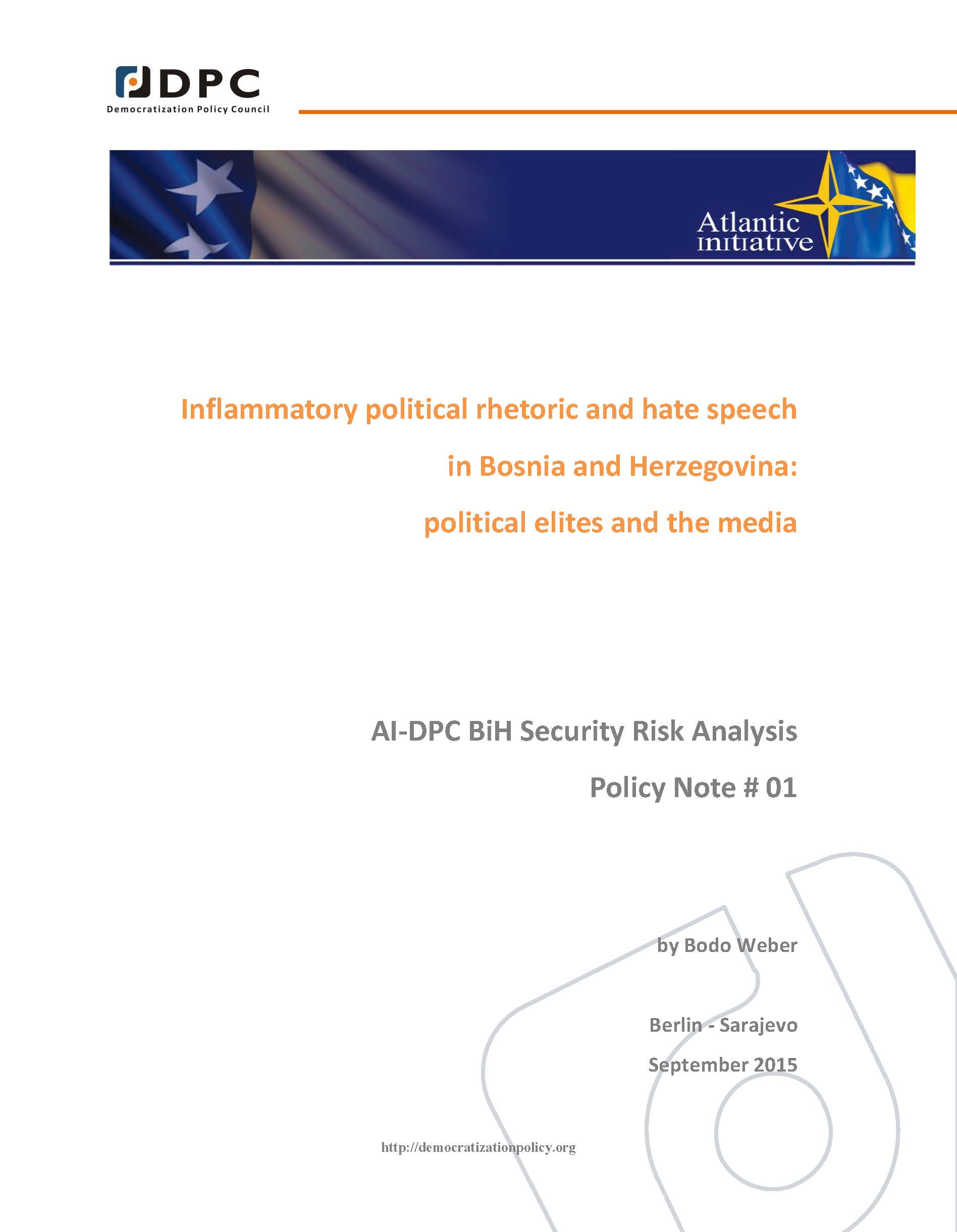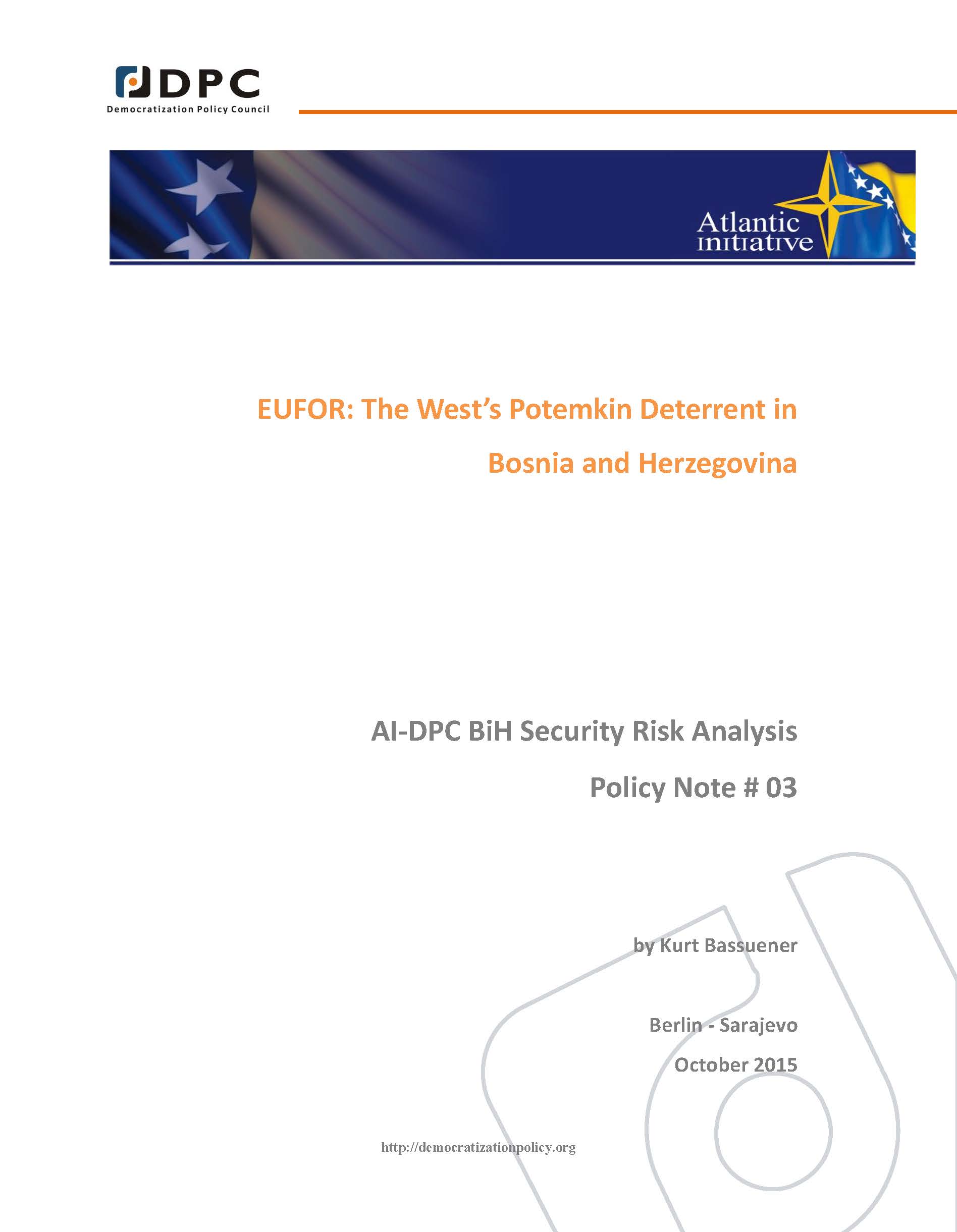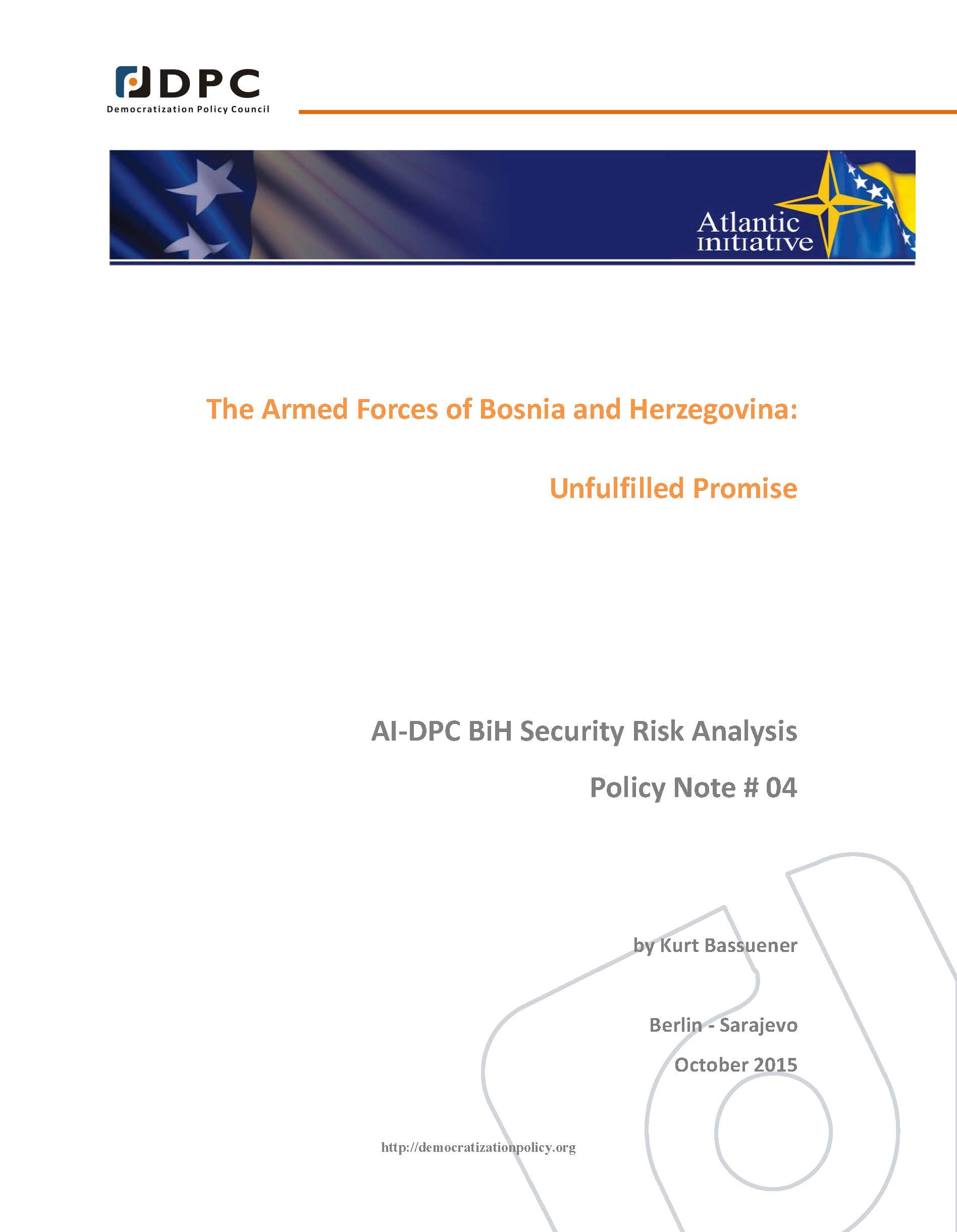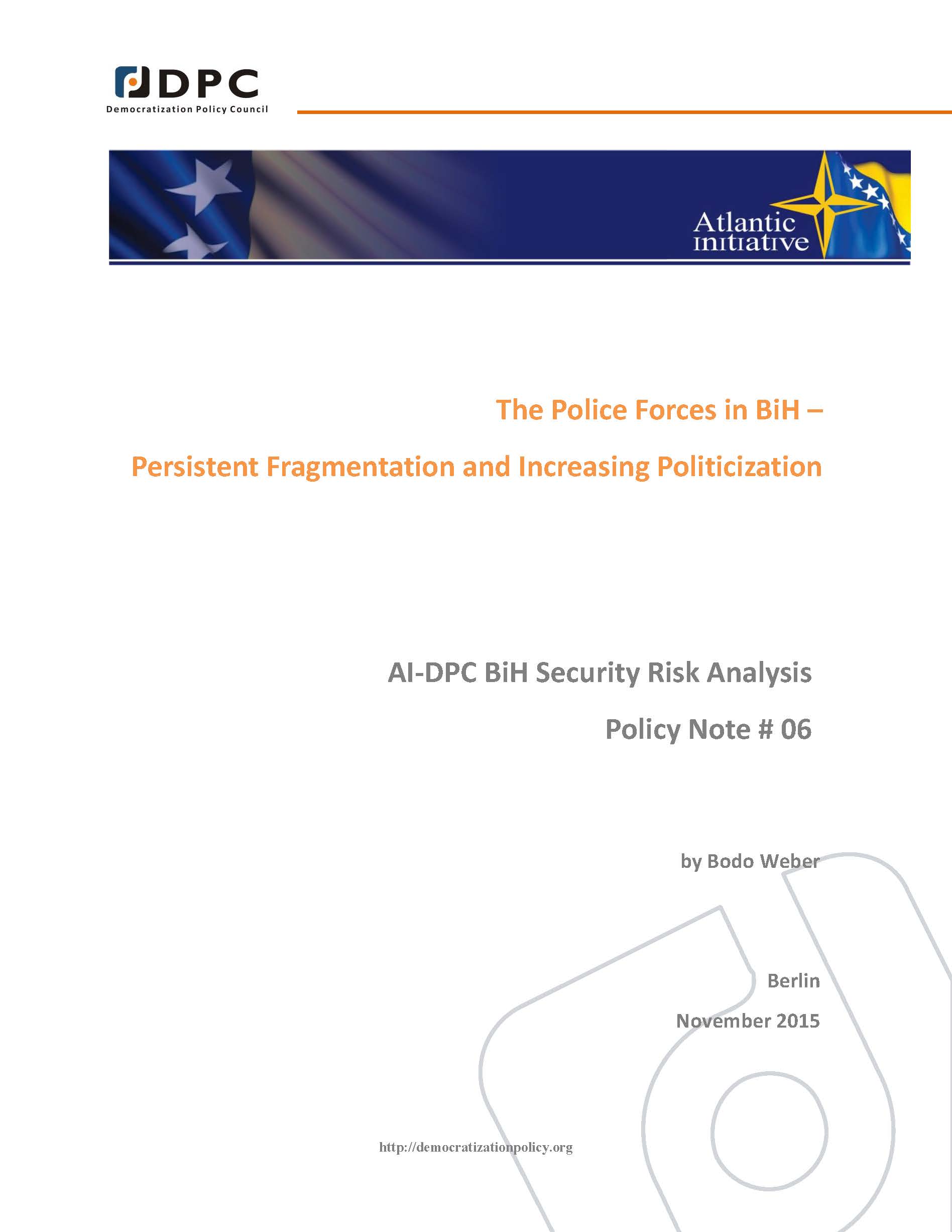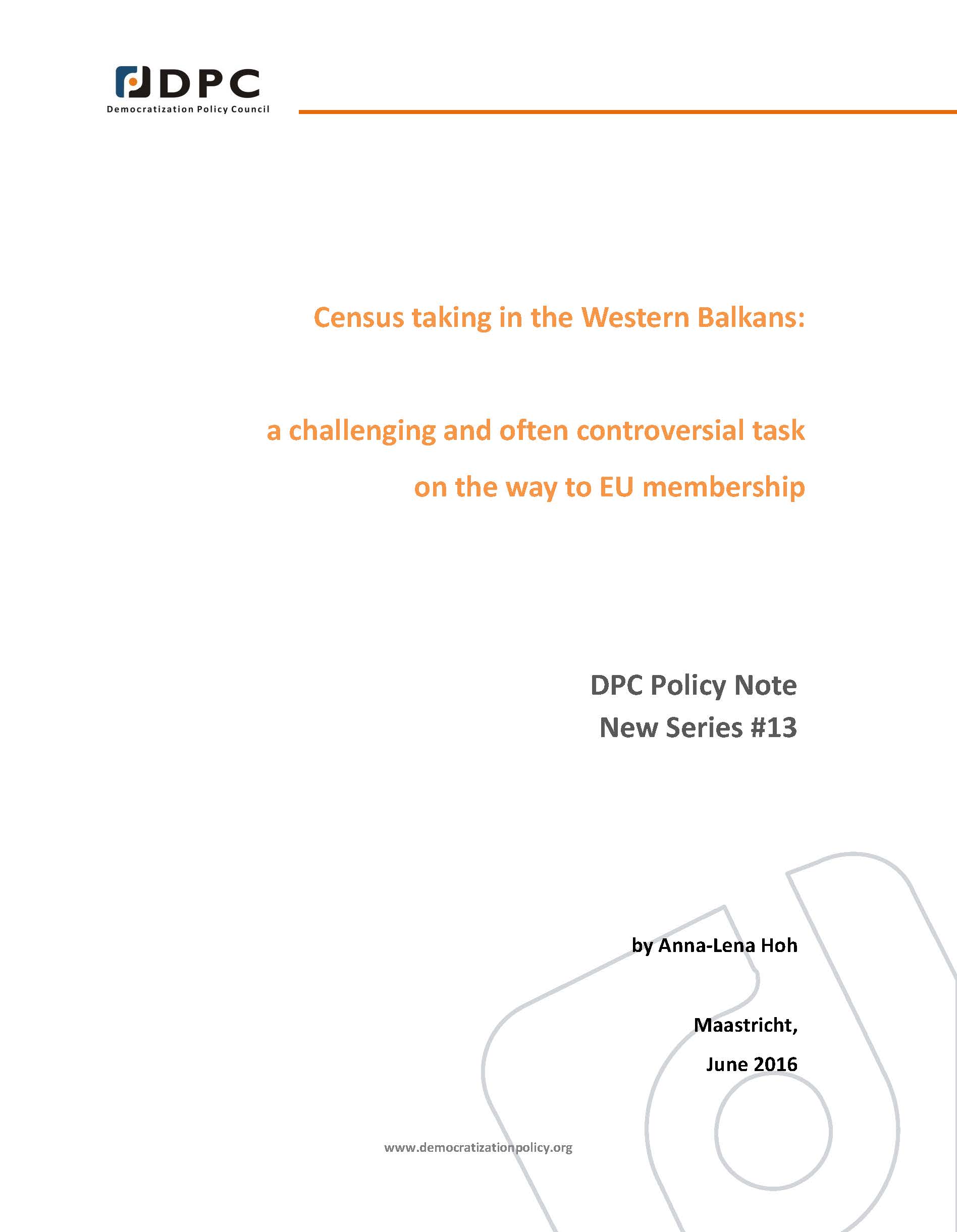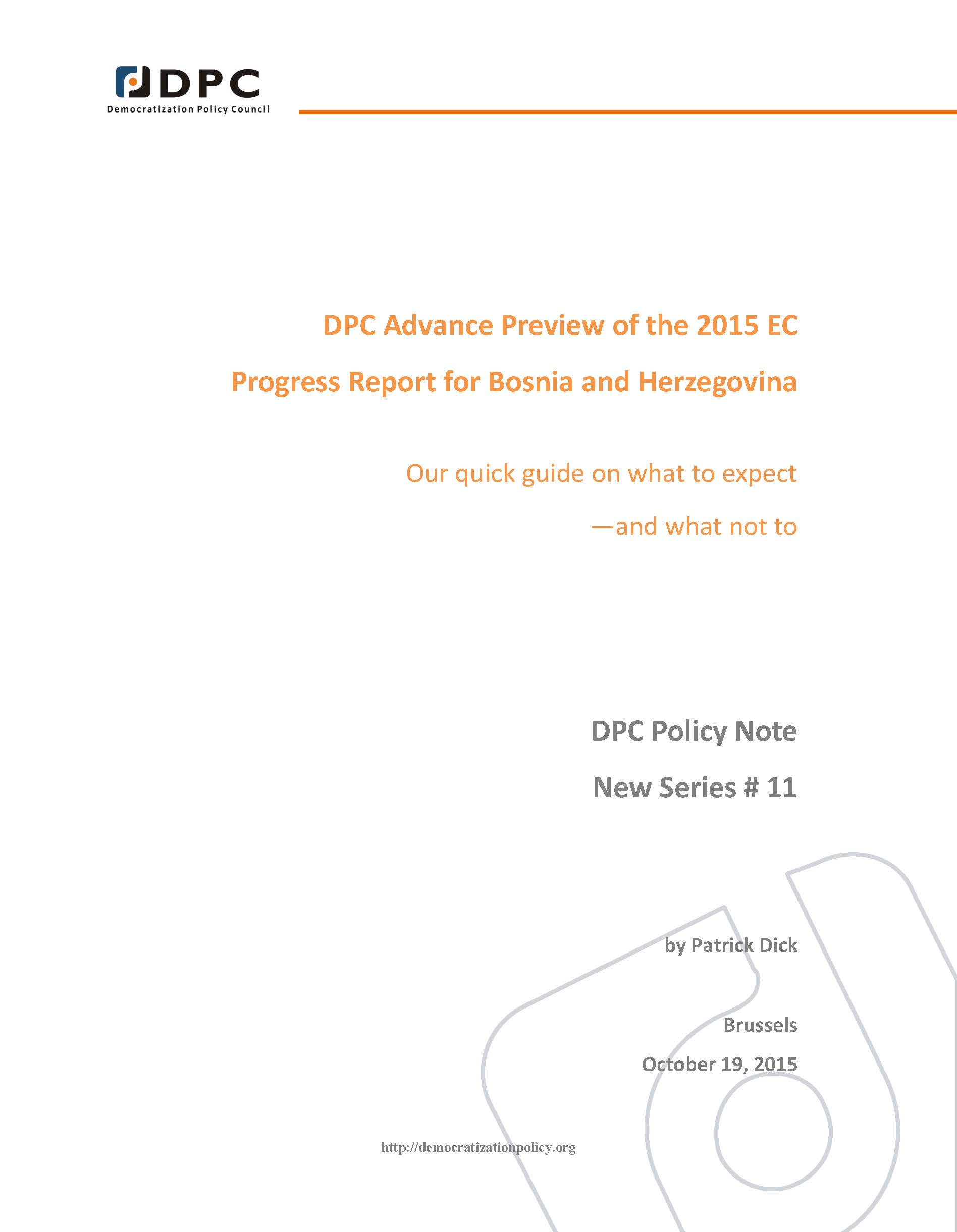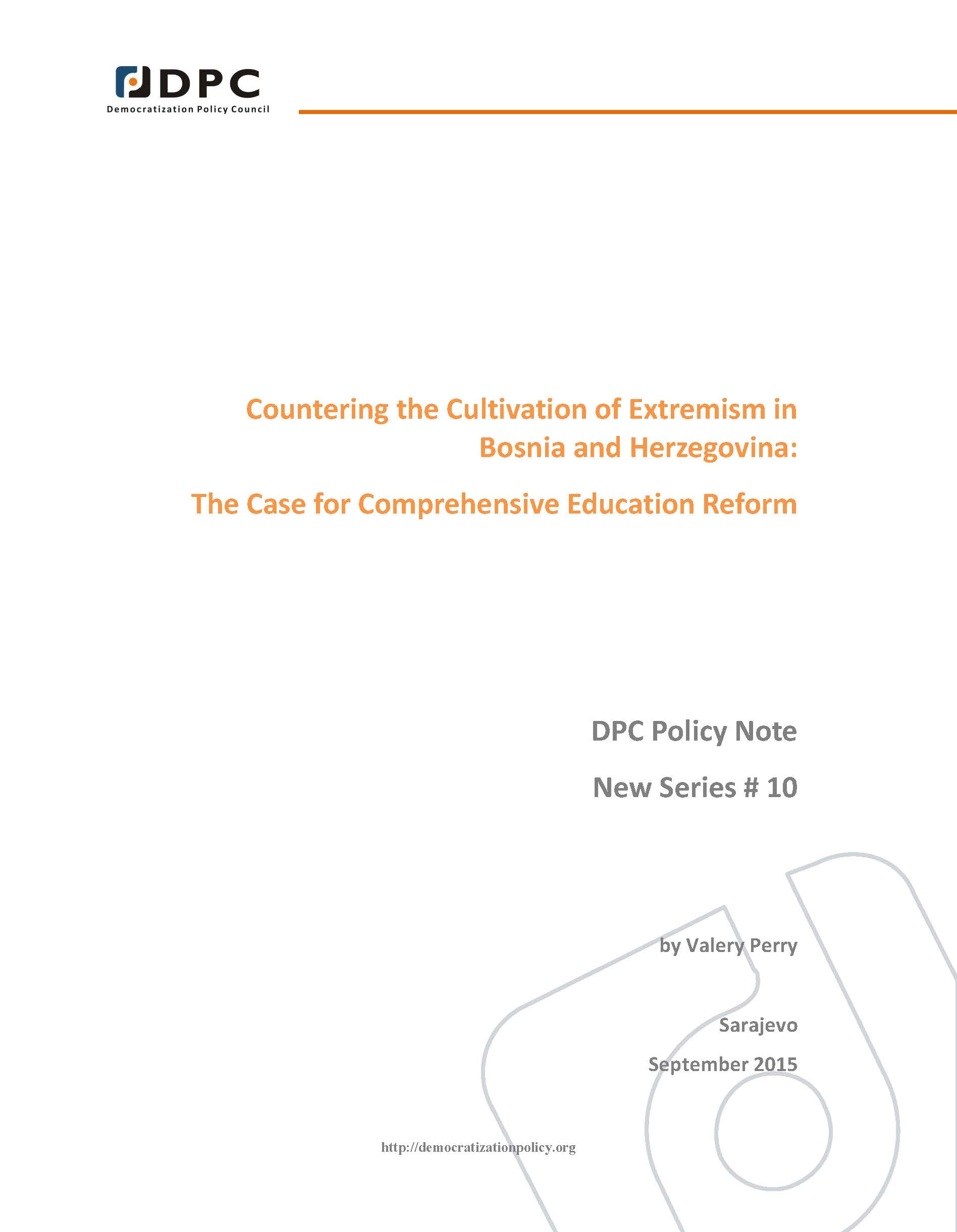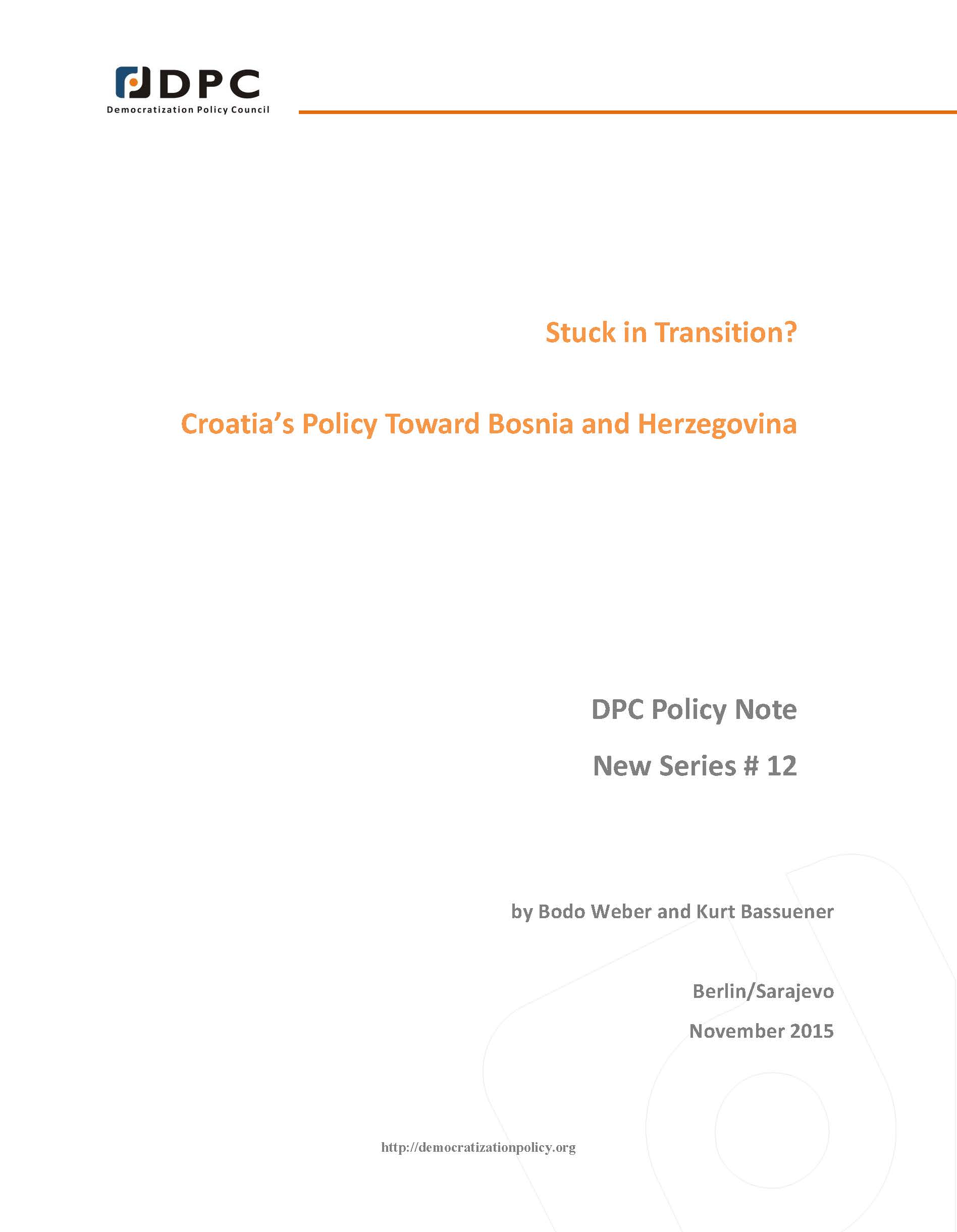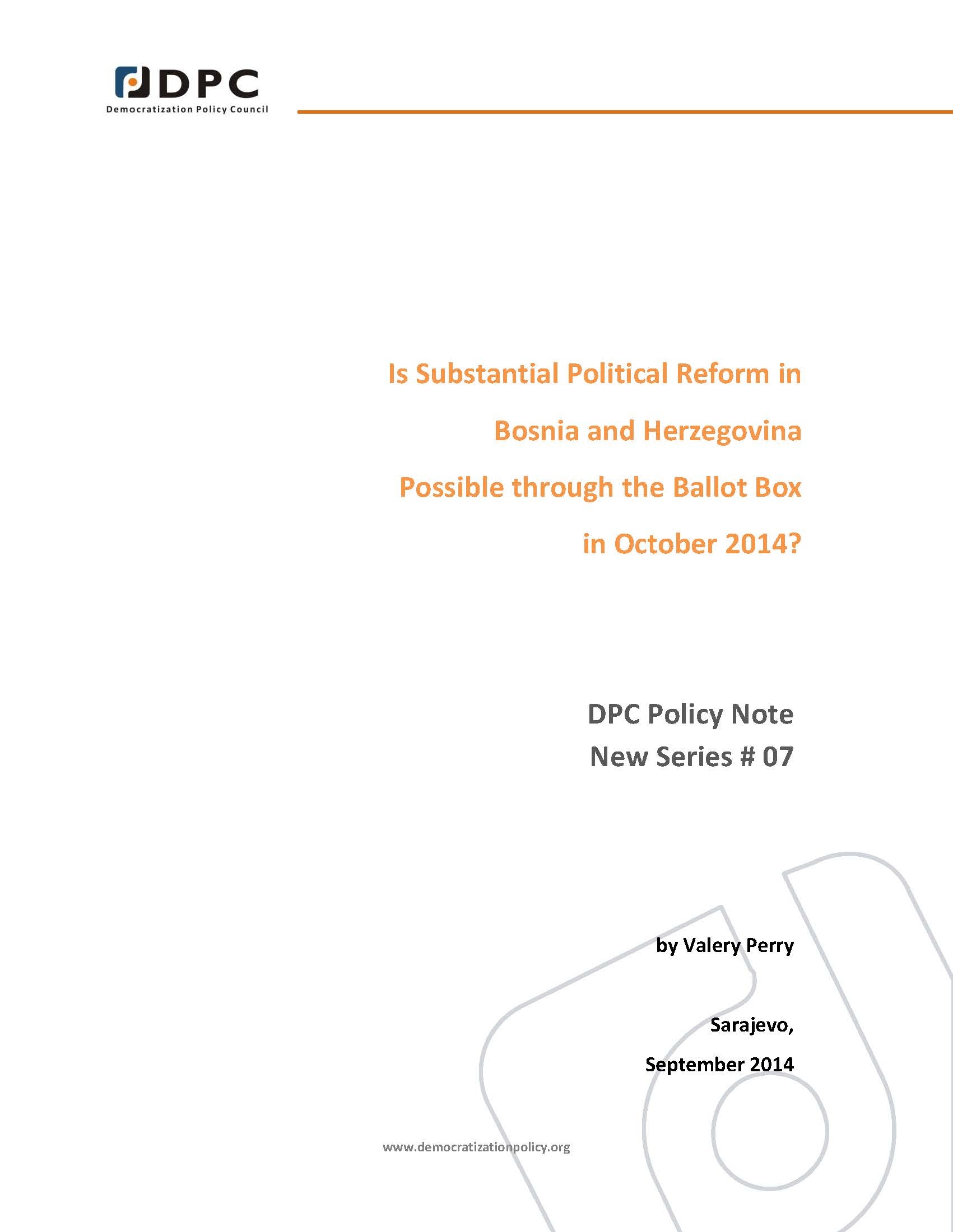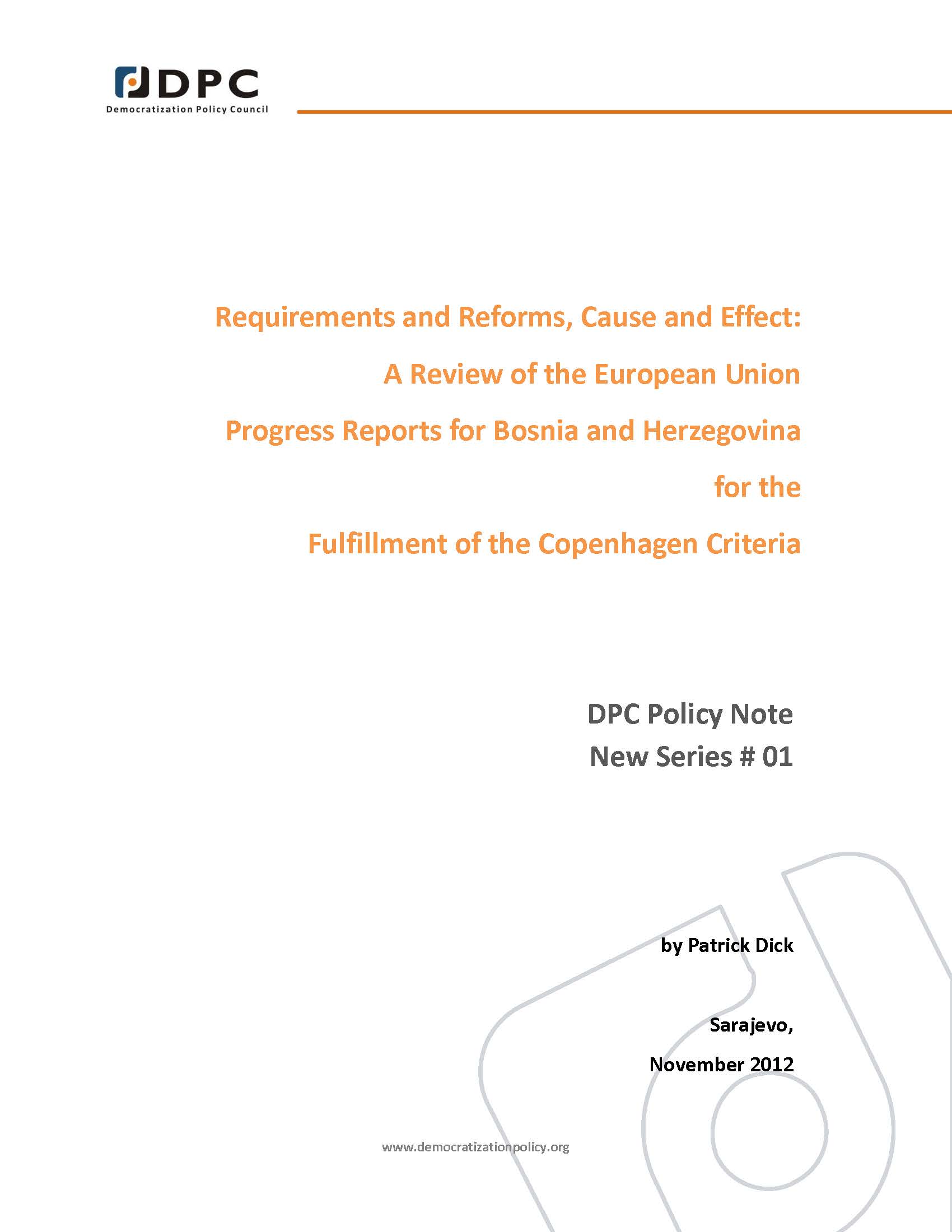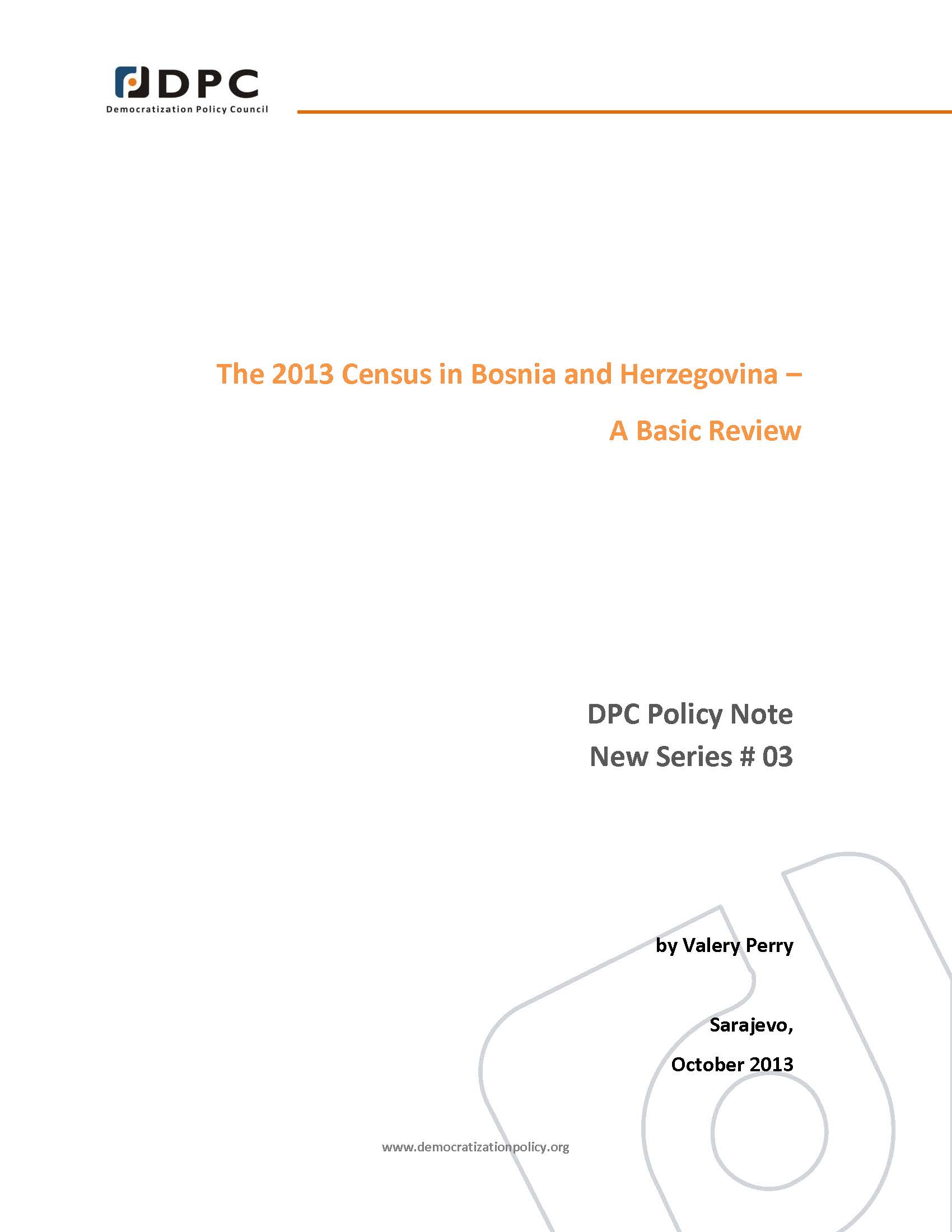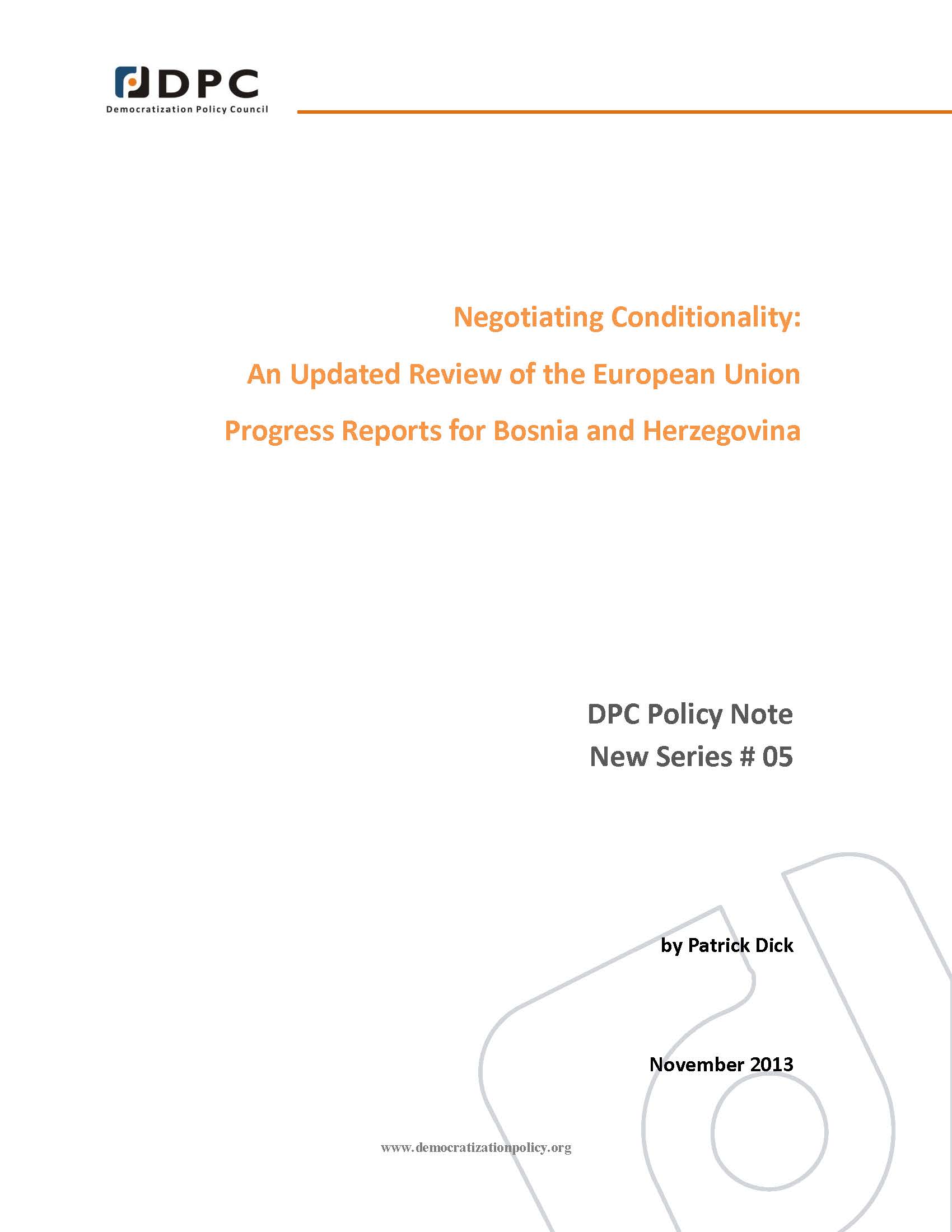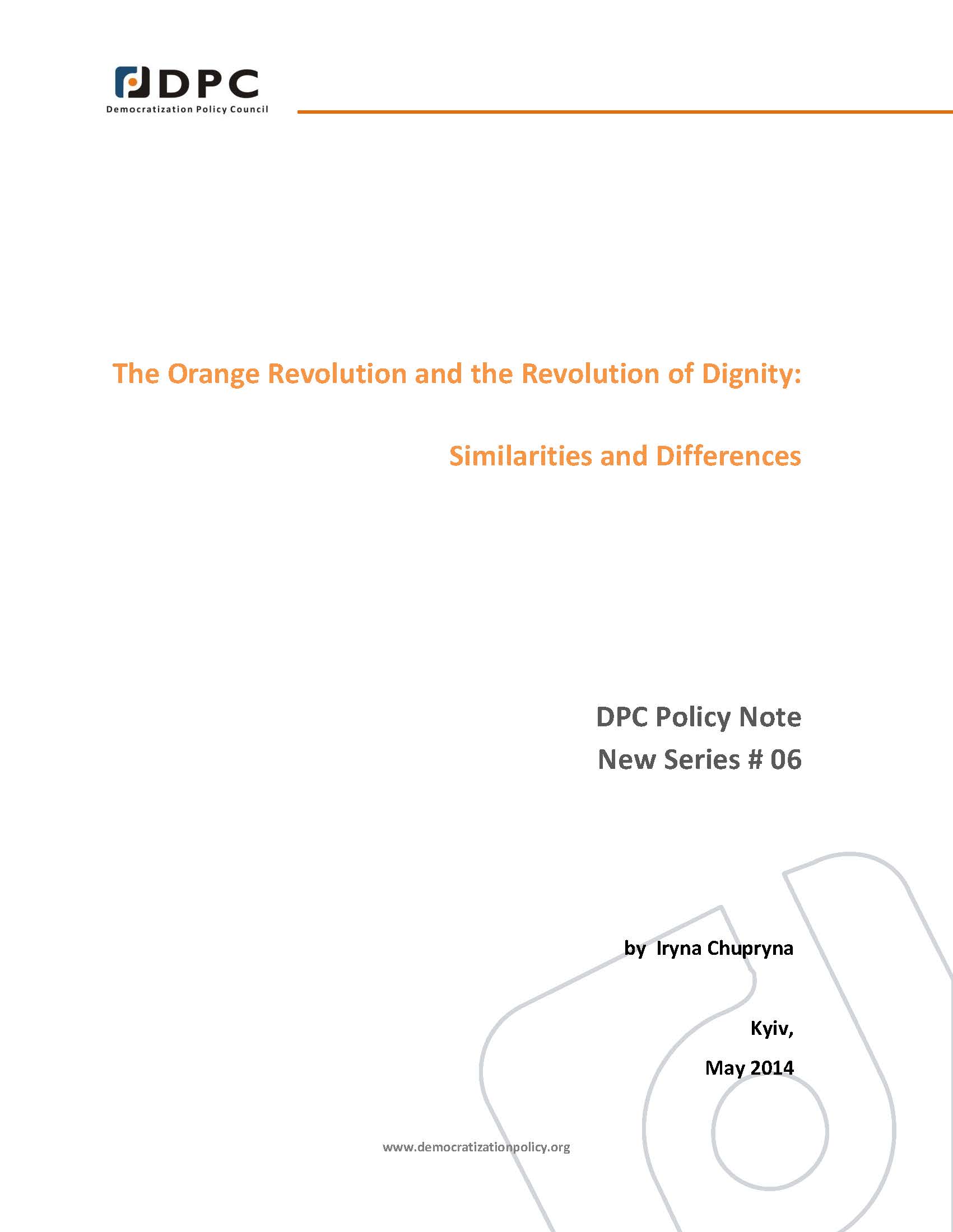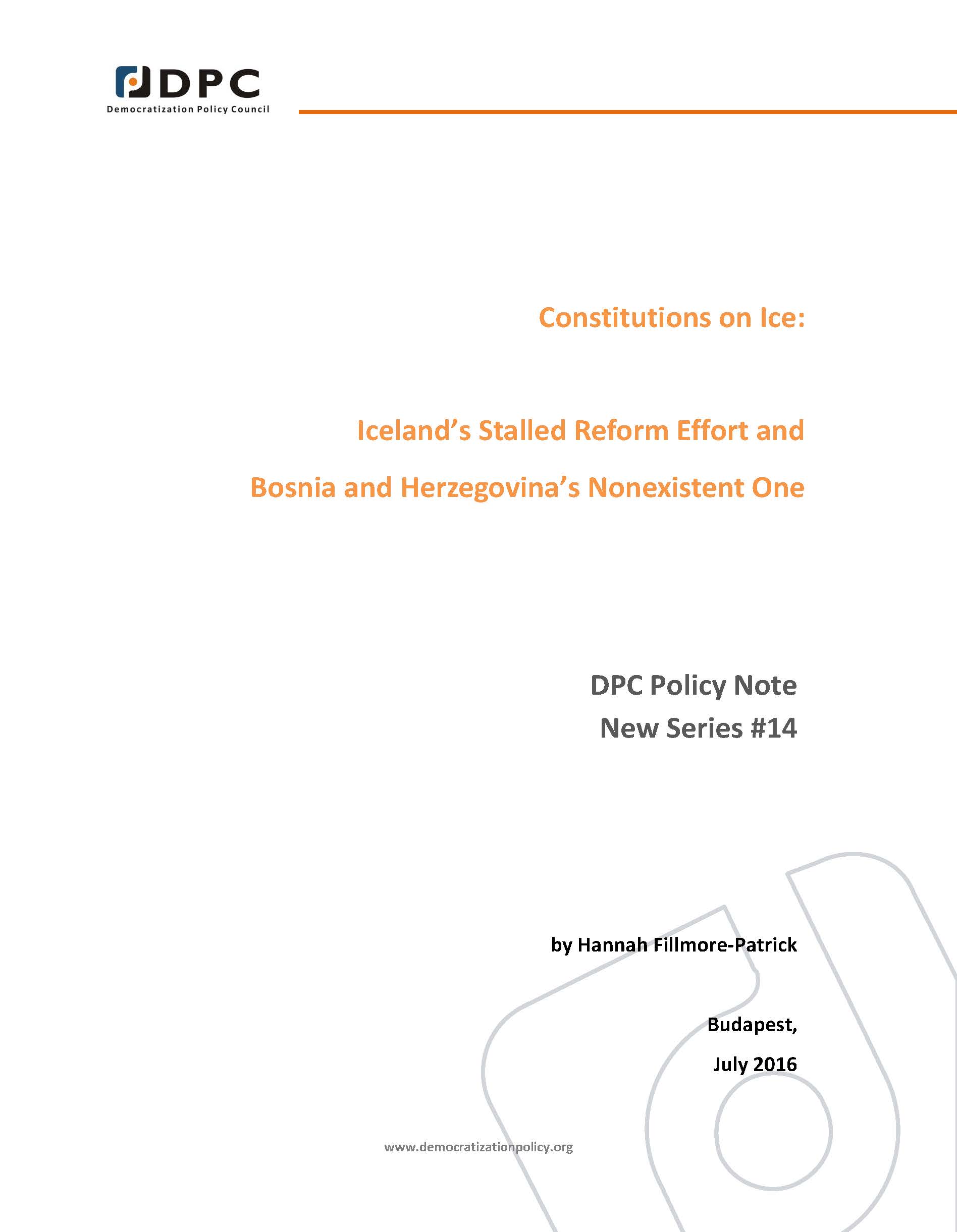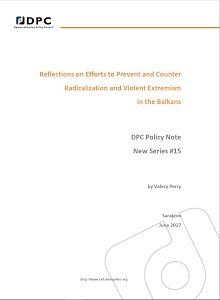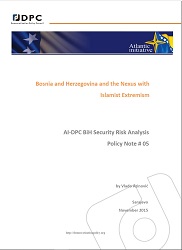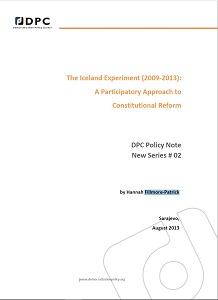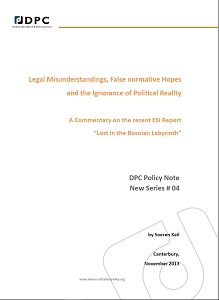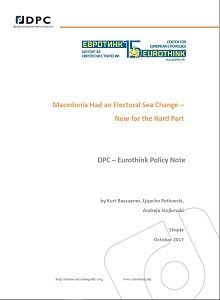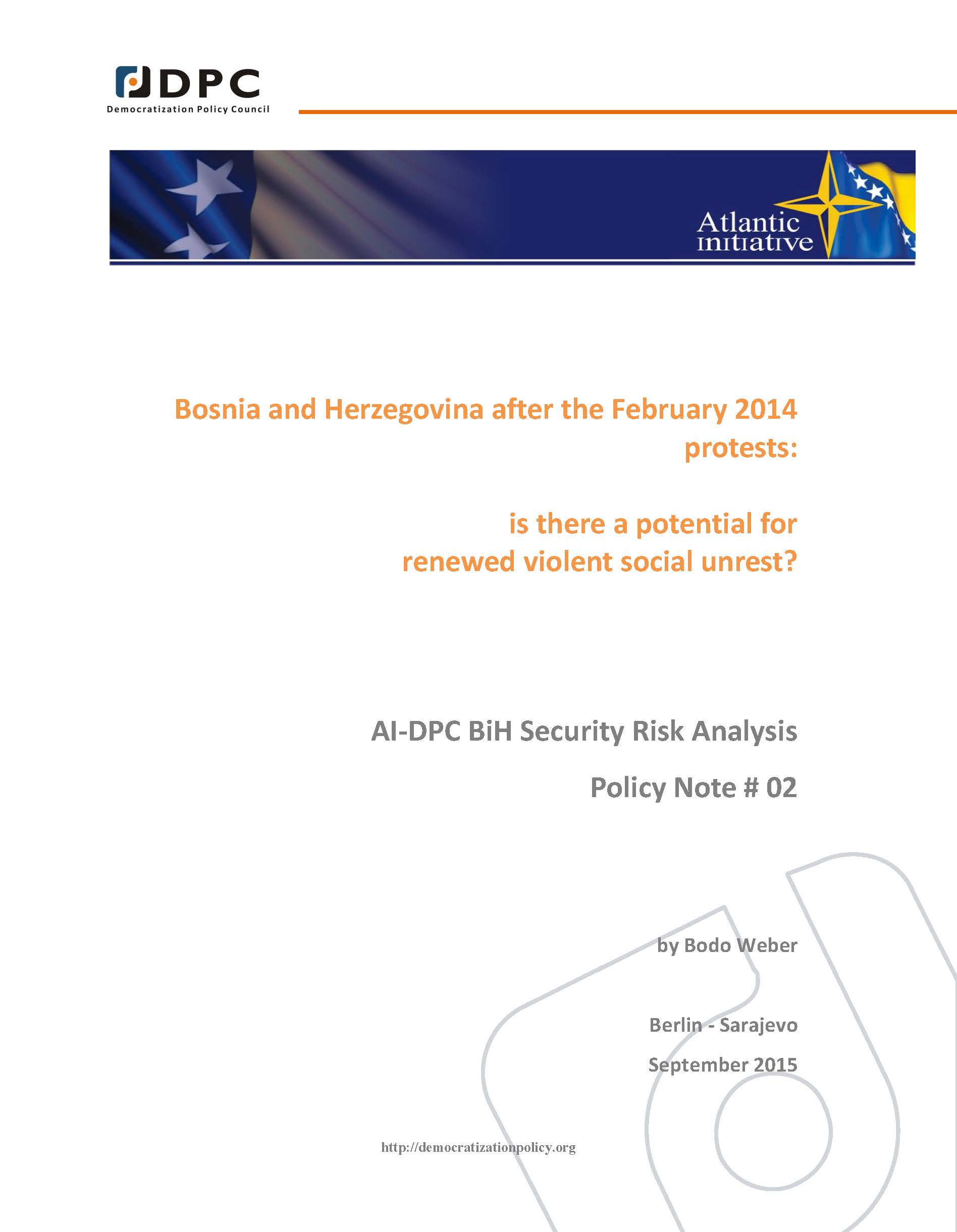
AI-DPC BiH SECURITY ANALYSIS POLICY NOTE 02: Bosnia and Herzegovina after the February 2014 protests: is there a potential for renewed violent social unrest?
AI-DPC BiH SECURITY ANALYSIS POLICY NOTE 02: Bosnia and Herzegovina after the February 2014 protests: is there a potential for renewed violent social unrest?
Keywords: BiH; February; 2014; protests; social unrest; post-war economy; recession; political instability; IFI; EU; structural reforms;
Despite a multitude of challenges and structural problems inherited from the pre-war and wartime socio-economic system and the post-war state structure, Bosnia and Herzegovina (BiH) saw remarkable economic recovery and growth from 2004-06. This was partly due to some state-building reforms including the introduction of a unified VAT rate and a Single Account for indirect tax collection and revenue distribution, made possible by serious international engagement that in turn boosted the reform willingness of domestic political elites. However, hopes that domestic elites would continue structural reform on the way to Euro-Atlantic integration quickly proved unfounded when the West, in a policy shift in 2005/06, began handing increasing responsibility to domestic actors. Not only did the ruling elites not follow through with reforms, but they expanded the existing political-economic patronage system. The main elements of this patronage system are burgeoning public employment and a system of status-based social benefits for certain social groups, especially war veterans. Both elements are ethnically based and use administrative resources to tie the political loyalty of large social groups to the ruling ethnic parties. The exploding cost that went with the excessive expansion of patronage ate up the effects of the previous economic growth and fiscal performance and made Bosnia and Herzegovina enter the global economic crisis in 2008 on homemade terms. The country succeeded to escape from recession after 2010, but it failed to move towards socio-economic recovery and sustainable growth. The slow-down of the global recession and the implementation of basic initial structural reforms on domestic soil stopped the dramatic economic downturn. But the structural causes of the socio-economic weakness, and above all the patronage system, remained untouched. In order to uphold a fragile socio-economic stability, the ruling elites increasingly relied on foreign and domestic borrowing and on international financial institutions such as the IMF. The IMF has continued to provide credit arrangements since 2010, even though structural reforms were not being implemented and reform commitments were not being honored, and despite rising political instability. The reasons for this generosity lie primarily with the EU’s policy of that period: unable to muster the political will to confront domestic political resistance to reforms in BiH, the Union has lowered or dropped altogether its reform conditions. In 2013, the EU provided direct support to the BiH State budget without any serious conditionality. With rapidly rising levels of public indebtedness and social disaffection, this approach proved unsustainable in the long run – as became evident in the violent outburst of social frustrations in February 2014. The protests ended essentially without any results; all the socio-economic and political factors that provoked them in 2014 remain in place and pose a continuing security risk for the future of BiH. It remains to be seen if the EU’s new BiH initiative, spearheaded by Germany and the UK, really has the potential to promote serious structural economic and social reforms.
More...
